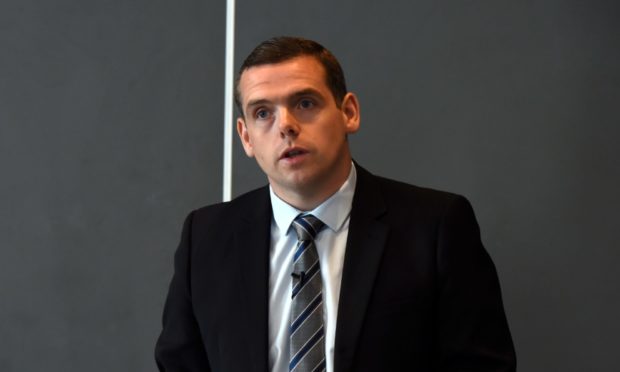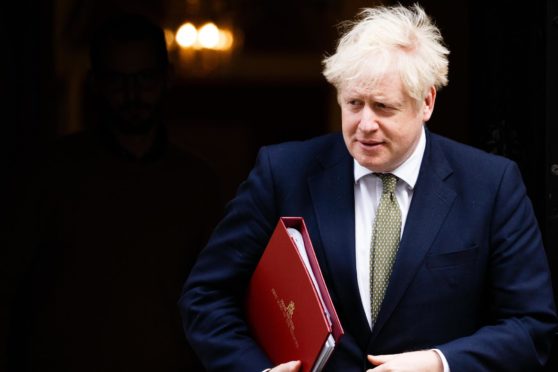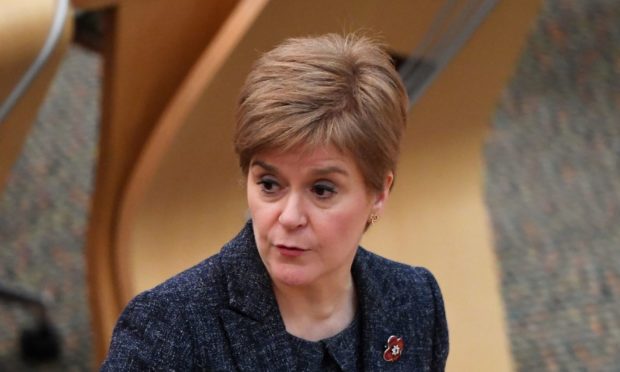Douglas Ross has slammed the UK Government’s handling of the pandemic and Brexit, saying Westminster’s approach has “undermined” the union.
Delivering a keynote speech at the Policy Exchange this morning, he took aim at the Treasury over the furlough scheme – saying Rishi Sunak must agree to extend it, in full, in Scotland if another lockdown is necessary.
Scottish Government ministers have been locked in a battle with Downing Street after officials said on Sunday that the UK Government would not foot the bill for a shut down in Scotland after December 2, despite making cash available as England enters lockdown from Thursday.
“This has to be cleared up,” Mr Ross said.
He added: “Now that the scheme has been extended to cover the impact of a second lockdown in England, how could a unionist government not restart the scheme if a second lockdown is required in Scotland?
“It cannot be that furlough is not affordable when Scotland, Wales, Northern Ireland or parts of Northern England need to go into lockdown – but when all of England goes into lockdown, the taps are turned on.”
“The UK Government must treat Scotland the same way as England,” he said.
Brexit and ‘winner takes all’
In the speech, titled Why Is Our Union Special?, he also hit out at the Brexit negotiations – saying the way they had been conducted had “undermined” the UK’s shared values.
He said: “There is no getting away from the fact that Brexit and how it has been delivered has undermined the perception that there are common, shared values that unite us.
“We failed to bring our country back together again after the vote. Leave and Remain parts still feel divided more than four years on from the decision.
“We did not build a consensus around delivering Brexit. Instead there has been a ‘winner-takes-it-all’ approach.
“And that has alienated former Remain supporters who still feel aggrieved at the referendum result. In Scotland, the outlet for that anger and frustration is the SNP.”
He added: “After the Brexit process and the handling of the pandemic Scots no longer see our union as underpinned by shared values, as special.
“So even more important than “union polices”, we need to see factoring in upholding our open and inclusive union into everything the government does, to reemphasise the shared values that exist across our four nations.
“Make restating our shared union values of openness and inclusion a part of everything the government does.
“And if we do that then I believe that we will see support for independence fall.”
Policy goals
The Scottish Tory leader set out five key policies, which he said would strengthen the Union cause.
He said a UK Shared Prosperity Fund that would add to funding for the Scottish Government was key, along with allowing Scottish Government involvement in trade discussions.
Mr Ross further called for a more flexible immigration system to suit the needs of Scotland, a formal framework for engagement between the Scottish and UK governments and Lords reform to make the upper chamber more representative.
Mr Ross cautioned his colleagues against going down a road that would reverse devolution in any way.
He said: “There are those who see devolution as a massive strategic error, as a Pandora’s box that once opened was a “process, not an event” not towards a stable settlement but towards independence, one that has given the SNP a platform from which it has the resources and the exposure to destroy the British state and, therefore, the only way to strengthen the union is to abolish the Scottish Parliament and return to a pre-1999 situation or severely constrain its powers.
“I say to them, we live in a reality where devolution enjoys widespread public support. I say to those people to keep their eye on the prize of defeating the SNP rather than attacking a settlement that the Scottish people support.”



